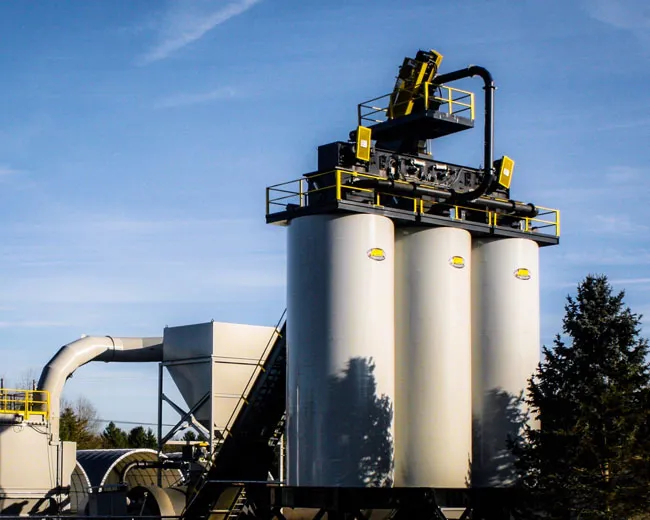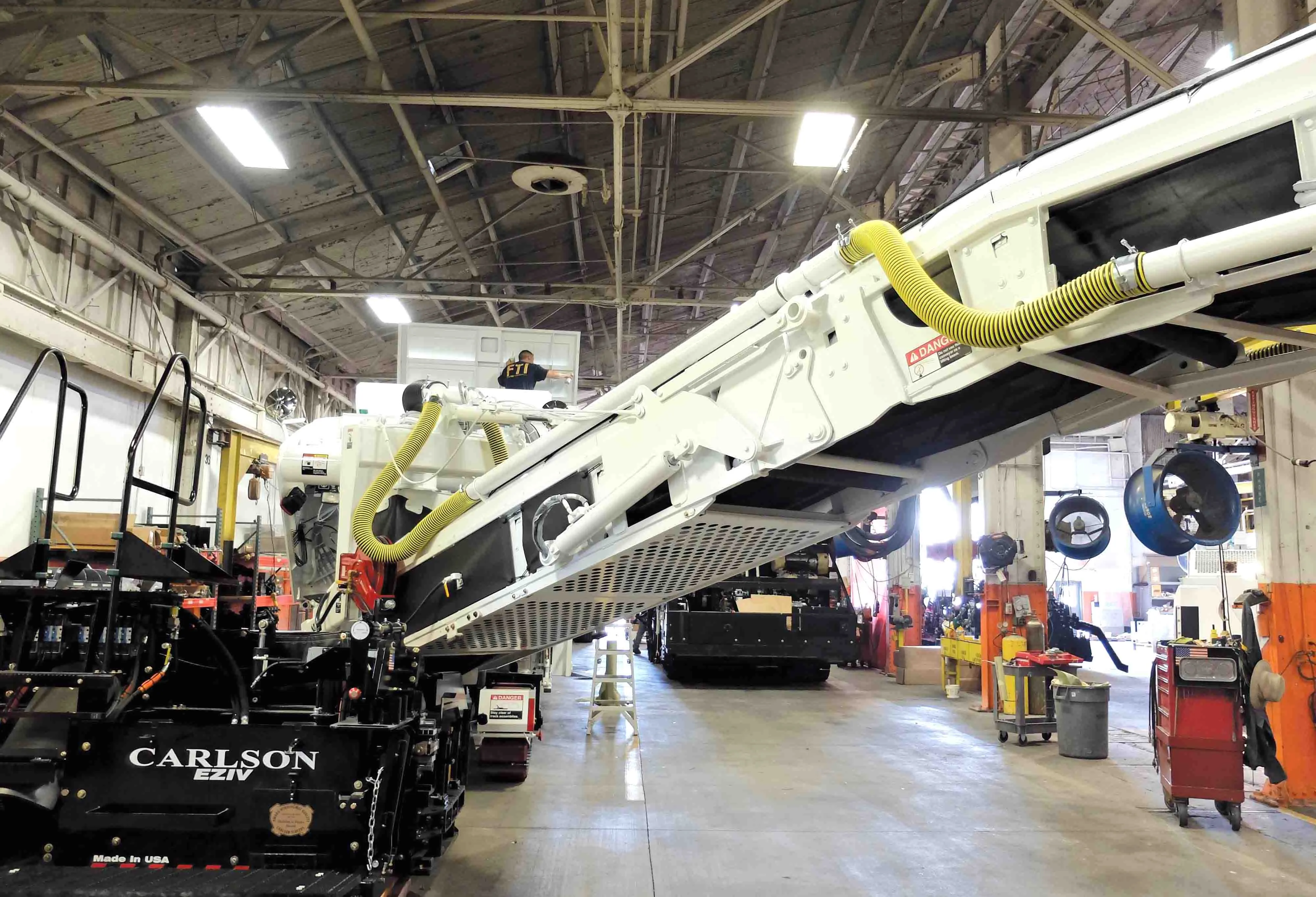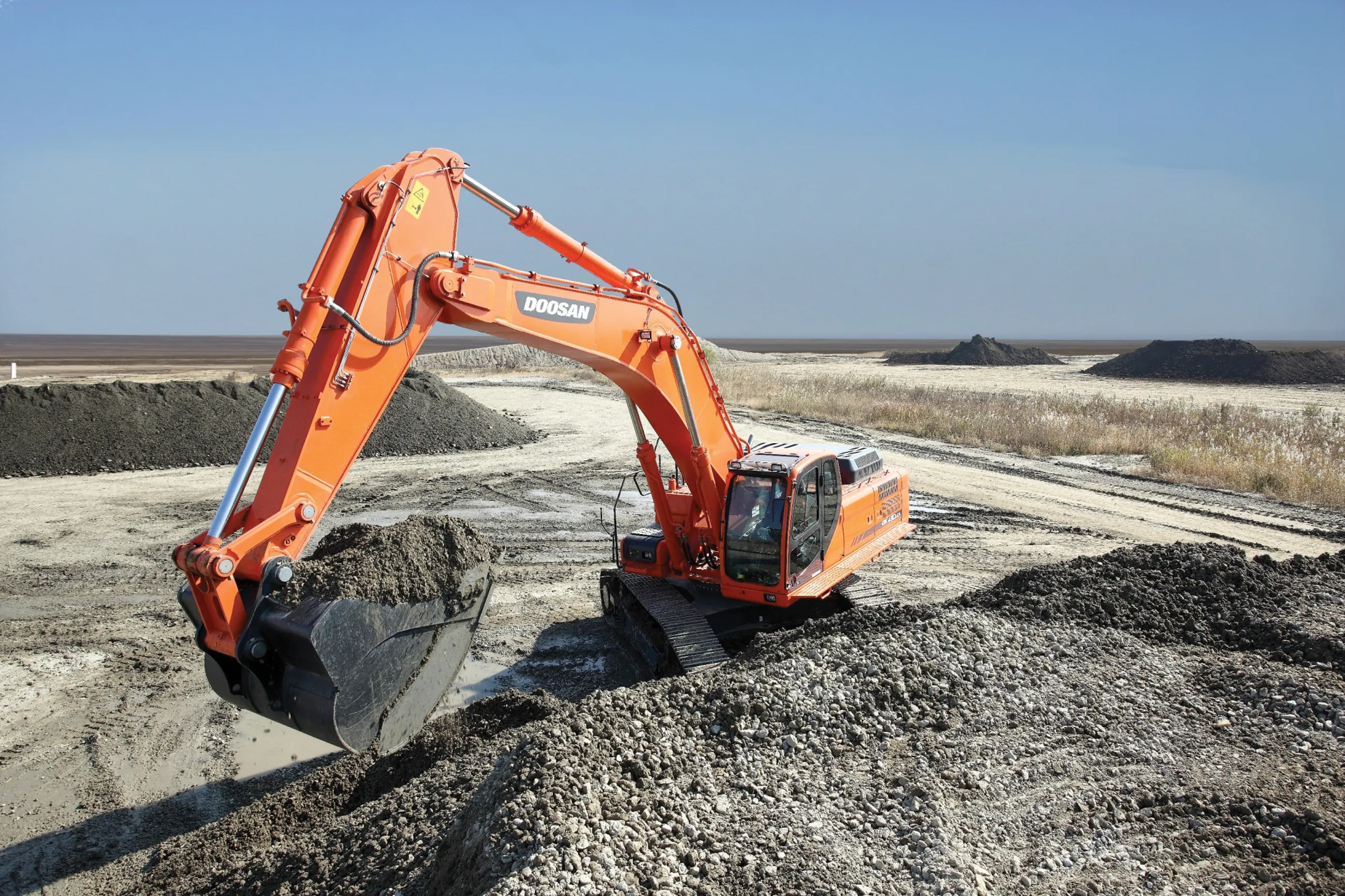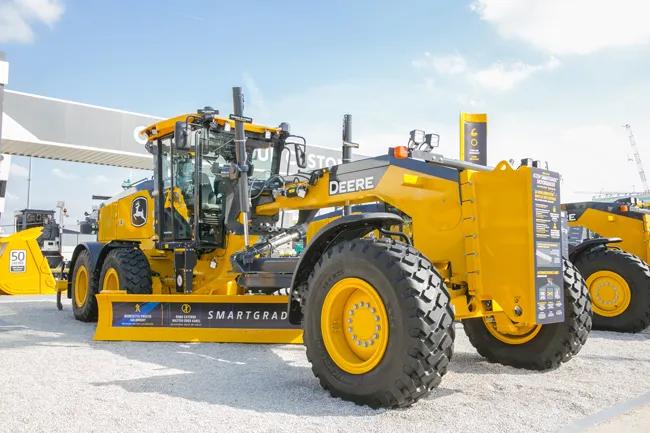Various engine firms can now derate emissions control systems if required – Mike Woof reports With the next stage of the tough emissions regulations now coming into force in North America and Europe, this has had a major impact on the sales of secondhand machines. The fuel delivery systems for these ultra-low emission diesels can only cope with high quality fuels with very low sulphur content. And tests on the effects of low quality, high sulphur fuels on the low emissions engines have shown corrosion and r
January 9, 2015
Read time: 4 mins
Various engine firms can now derate emissions control systems if required – Mike Woof reports
With the next stage of the tough emissions regulations now coming into force in North America and Europe, this has had a major impact on the sales of secondhand machines. The fuel delivery systems for these ultra-low emission diesels can only cope with high quality fuels with very low sulphur content. And tests on the effects of low quality, high sulphur fuels on the low emissions engines have shown corrosion and rapid wear of the high pressure, fuel injection systems. But these high quality fuels are only available in developed markets however, with lower quality fuels containing sulphur still being provided elsewhere around the world.
For the trade in secondhand machines, this has been a major issue. In the past, secondhand machines from highly regulated countries have typically been sold into developing markets, so with no high quality, low sulphur fuels available the trade has had to stop.
Some engine suppliers have come up with solutions to derate their low emissions engines however, solving the issue of secondhand sales into developing markets. JCB was one of the first, announcing that its low emissions diesels could be adapted by authorised dealers to run on the low quality fuels, with a key focus on adjusting the injection pressures and removing the aftertreatment equipment.
A number of other firms have also offered solutions, with Caterpillar being the latest diesel engine manufacturer to come up with a method for derating the emissions control systems on its latest engines. This is a key issue for manufacturers, dealers and customers alike and will help bolster the resale value of these machines.
Caterpillar is making the first in a series of authorised modification processes available for its used Tier 4 Interim products. The processes will be available exclusively from Cat dealers in certain countries with less stringent or no non-road emissions standards and will be applicable to used Tier 4 Interim machines. It is a significant development as it means customers in those territories will now be able to source machines from highly regulated countries.
The authorised modification processes include decertification and were developed to remove aftertreatment from engines to allow their operation in lesser- and non-regulated countries. Extensive testing, analysis and field validation has shown that Cat Tier 4 Interim engines delivering less than 130kW will require modification to retain peak operating performance when sold outside of the highly regulated countries. However, Cat Tier 4 Interim engines that deliver from 130-895kW (7-32L engines) being sold outside of highly regulated markets will not require any aftertreatment removal or modification to maintain peak performance.
“In keeping with our aggressive product migration strategy, Caterpillar identified used products and geographies as higher probability recipients of used Tier 4 Interim products,” said Engineering Manager Rick Jeffs. “We have therefore focused our design and development efforts for this first series of modification processes to align with those higher probabilities. Using those same priorities and probabilities, Caterpillar has also been preparing dealers to support the migration of used Tier 4 Interim products to those targeted geographies. Further, we know Tier 4 Final products won’t be far behind the Interim products, which is why the strategy we’ve developed focuses on a solution for today’s customers—and for future customers.”
The first modification processes and supporting materials for select products will be available only from local LRC/NRC Cat dealers. They have undergone service training and retooled where necessary to support Cat Tier 4 products. Dealers have also stocked the required parts, and they have information on specific product availability, as well as revised maintenance guidelines, optional fuel filtration kits and rebuild/overhaul repair options. “When select Cat Tier 4 products that require modification migrate to lesser- and non-regulated countries, the authorised modification processes must be done by a local Cat dealer trained to support the products,” Jeffs said.
He added that Caterpillar has prepared dealers to help customers understand how to operate and maintain these next generation products. He also emphasised that it is imperative for customers contemplating the purchase or modification of used Cat Tier 4 products to understand and comply with their local regulatory requirements.
With the next stage of the tough emissions regulations now coming into force in North America and Europe, this has had a major impact on the sales of secondhand machines. The fuel delivery systems for these ultra-low emission diesels can only cope with high quality fuels with very low sulphur content. And tests on the effects of low quality, high sulphur fuels on the low emissions engines have shown corrosion and rapid wear of the high pressure, fuel injection systems. But these high quality fuels are only available in developed markets however, with lower quality fuels containing sulphur still being provided elsewhere around the world.
For the trade in secondhand machines, this has been a major issue. In the past, secondhand machines from highly regulated countries have typically been sold into developing markets, so with no high quality, low sulphur fuels available the trade has had to stop.
Some engine suppliers have come up with solutions to derate their low emissions engines however, solving the issue of secondhand sales into developing markets. JCB was one of the first, announcing that its low emissions diesels could be adapted by authorised dealers to run on the low quality fuels, with a key focus on adjusting the injection pressures and removing the aftertreatment equipment.
A number of other firms have also offered solutions, with Caterpillar being the latest diesel engine manufacturer to come up with a method for derating the emissions control systems on its latest engines. This is a key issue for manufacturers, dealers and customers alike and will help bolster the resale value of these machines.
Caterpillar is making the first in a series of authorised modification processes available for its used Tier 4 Interim products. The processes will be available exclusively from Cat dealers in certain countries with less stringent or no non-road emissions standards and will be applicable to used Tier 4 Interim machines. It is a significant development as it means customers in those territories will now be able to source machines from highly regulated countries.
The authorised modification processes include decertification and were developed to remove aftertreatment from engines to allow their operation in lesser- and non-regulated countries. Extensive testing, analysis and field validation has shown that Cat Tier 4 Interim engines delivering less than 130kW will require modification to retain peak operating performance when sold outside of the highly regulated countries. However, Cat Tier 4 Interim engines that deliver from 130-895kW (7-32L engines) being sold outside of highly regulated markets will not require any aftertreatment removal or modification to maintain peak performance.
“In keeping with our aggressive product migration strategy, Caterpillar identified used products and geographies as higher probability recipients of used Tier 4 Interim products,” said Engineering Manager Rick Jeffs. “We have therefore focused our design and development efforts for this first series of modification processes to align with those higher probabilities. Using those same priorities and probabilities, Caterpillar has also been preparing dealers to support the migration of used Tier 4 Interim products to those targeted geographies. Further, we know Tier 4 Final products won’t be far behind the Interim products, which is why the strategy we’ve developed focuses on a solution for today’s customers—and for future customers.”
The first modification processes and supporting materials for select products will be available only from local LRC/NRC Cat dealers. They have undergone service training and retooled where necessary to support Cat Tier 4 products. Dealers have also stocked the required parts, and they have information on specific product availability, as well as revised maintenance guidelines, optional fuel filtration kits and rebuild/overhaul repair options. “When select Cat Tier 4 products that require modification migrate to lesser- and non-regulated countries, the authorised modification processes must be done by a local Cat dealer trained to support the products,” Jeffs said.
He added that Caterpillar has prepared dealers to help customers understand how to operate and maintain these next generation products. He also emphasised that it is imperative for customers contemplating the purchase or modification of used Cat Tier 4 products to understand and comply with their local regulatory requirements.









